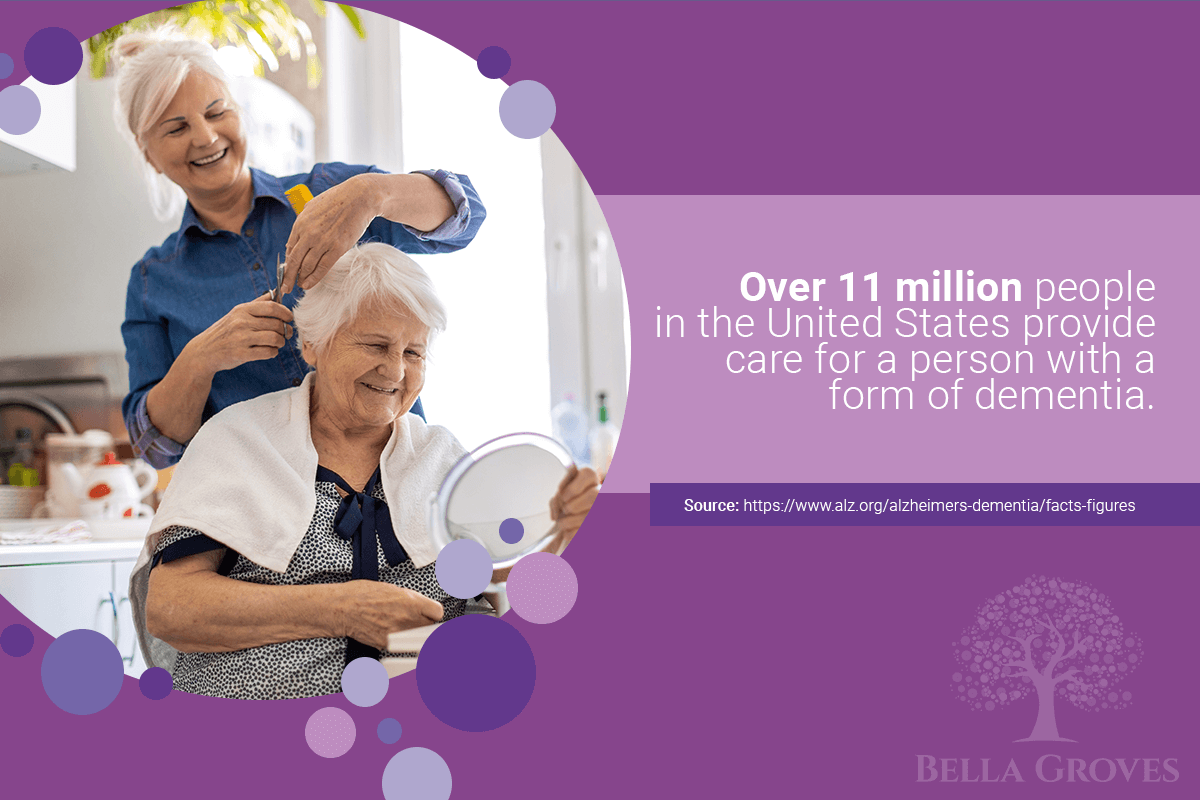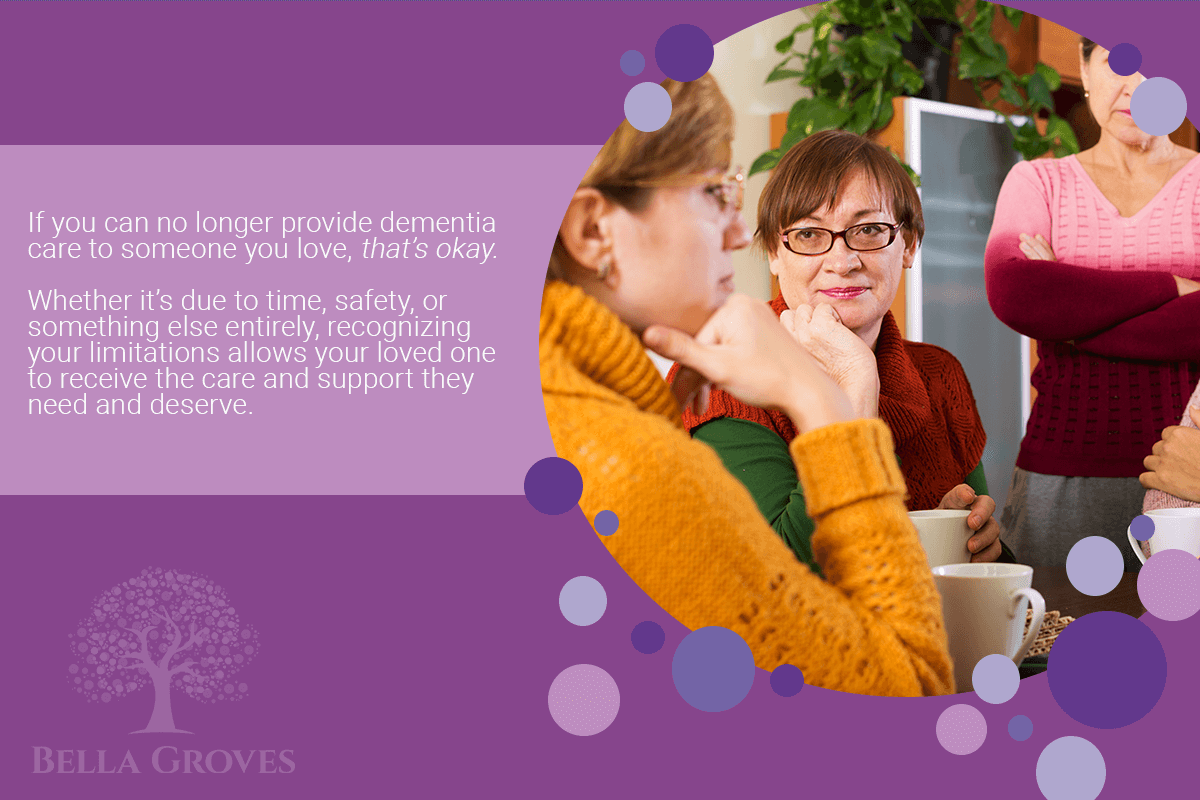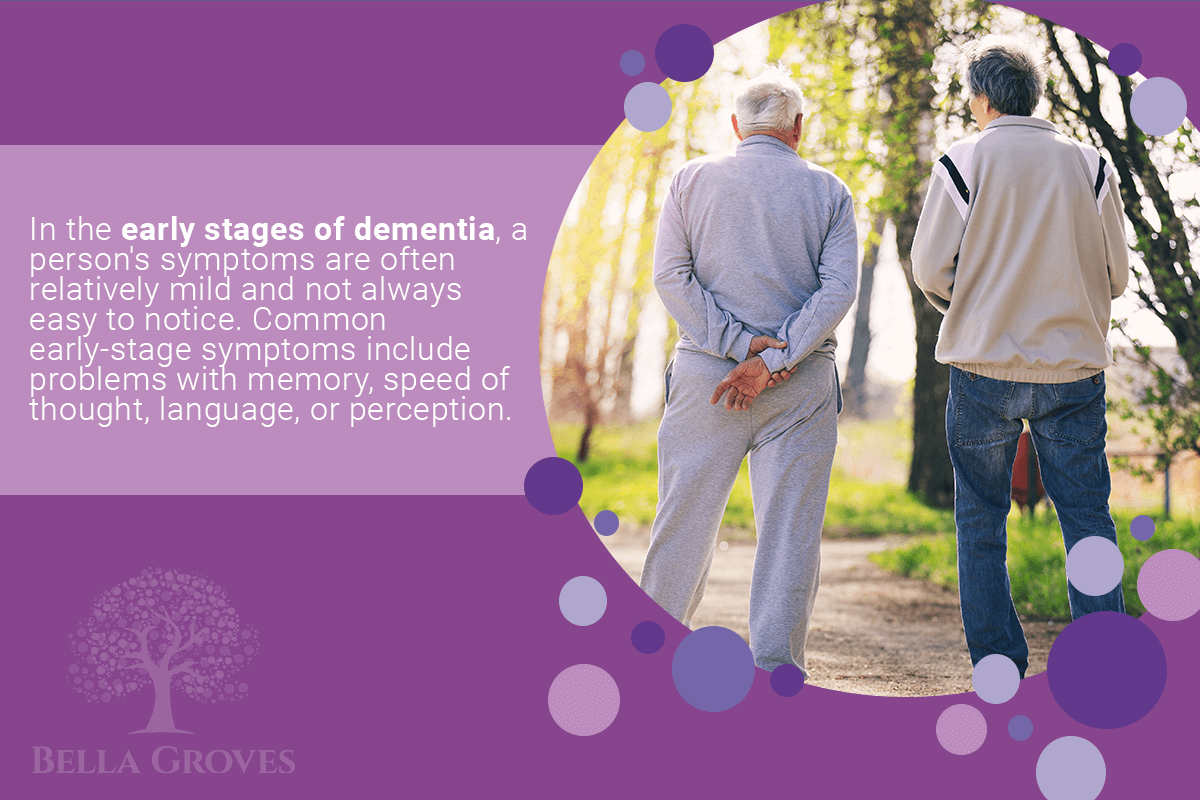
What to Expect When Caring for Someone with Dementia
Over 11 million people in the United States provide care for a person with a form of dementia. If someone you love has been diagnosed with dementia, you might be considering stepping into the role of a caregiver yourself.
Caring for someone with dementia is a selfless act that comes with many achievements – and challenges, and it’s essential that you understand what to expect before taking on such an important role in the health of another person.
At Bella Groves, we pride ourselves in offering resources that help care partners and family members understand how to find success and create moments of unconditional joy throughout this journey. Below, we’re sharing what you can expect when you begin caring for someone with dementia.
Learning How to Provide Care
With any challenge, it’s important to accept your emotions for what they are in order to cope with the journey ahead. By allowing yourself to feel the brevity of your loved one’s diagnosis, you can jump into the role of caregiver with confidence and comfort.
The next step is learning how to care for your loved one, whether you do your own. Here are some things to consider as you develop your plan for caring for someone with dementia.
Recognize That Things Will Take Time
Before diving headfirst into your caregiving role, remind yourself that nothing will fall into place overnight – everything takes time. As roles change in your family dynamic and dementia begins to progress, you will have to learn how to adjust and accommodate the changes.
Establish Effective Routines
Dementia can lead to an inevitable loss of control over a person’s daily life, which is why a strong routine can be one of the most helpful tools to implement in the earliest stages. This helps a person living with dementia feel more independent and builds their self-esteem. Here are a few tips for setting routines:
- Stay flexible and adjust routines to accommodate any changes that occur.
- Allow your loved one to safely participate in household chores and tasks.
- Include physical activity in their routine, like a daily walk or yoga regimen.
- Tailor their routine to their preferences and keep the routine in line with what they’ve already done for most of their life.
Maintain Successful Communication
Due to cognitive changes, dementia can impact a person’s ability to express how they feel, what they need, or understand what is happening around them.
The ability to communicate is vital to a person’s quality of life, and it can become incredibly isolating and frustrating for those living with dementia. Because of this, it’s crucial to create communication strategies for dementia care partners and understand the progression of dementia and how it impacts communication abilities so that you can continue to communicate successfully and effectively with your loved one. Learn more by reading our blog, Tips for Successful Communication with a Person Living with Dementia.
Relationship Dynamics May Change
When your loved one first received their diagnosis, you probably felt a range of emotions. Perhaps you felt confused, angry, or maybe even scared at the thought of the person you love facing such a challenging journey. More than anything, however, you probably began to wonder how your relationship with your loved one might change over dementia’s progression.
Dementia affects everyone differently and can range from difficulties with memory, thinking, problem-solving, mood, perception, and behavior. In other words, all of these symptoms have the potential to change a relationship dynamic, whether between spouses, relatives, friends, or a care partner.
However, as a dementia care partner, you play a vital role in helping your loved one experience a complete and meaningful life. By treating them with dignity throughout the dementia care journey, you can continue to nurture a trusting, healthy, and joyful relationship.
When caring for someone with dementia, we have to remember that dementia is an illness, but the person you love is still there. Bella Groves is here to help you on your dementia care journey from day one. We provide varying levels of services and support so that families have the tools and confidence to work through the challenging times and create more moments of unconditional joy.


